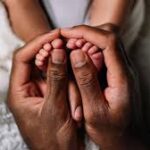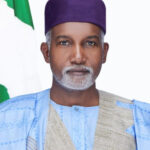Ivory Coast is facing a fresh wave of political tension ahead of its October 25 presidential election after the government announced a sweeping ban on all public meetings and demonstrations contesting the exclusion of several major opposition figures from the race. The decision has sparked outrage among opposition supporters and civil society groups, raising concerns about the state of democracy in the West African nation.
The ban follows the Constitutional Council’s release of the final list of approved presidential candidates, which excluded some of the country’s most influential opposition leaders. Among those barred from contesting are Tidjane Thiam, former CEO of Credit Suisse and leader of the Democratic Party of Ivory Coast (PDCI); ex-president Laurent Gbagbo; Charles Blé Goudé, a former youth leader and political ally of Gbagbo; and Guillaume Soro, a former prime minister and rebel leader.
The disqualification of Tidjane Thiam has drawn particular controversy, as it is linked to a court ruling that he held French nationality at the time of his registration, despite renouncing it earlier this year. Critics argue that the ruling was politically motivated and designed to sideline one of the strongest challengers to the ruling establishment.
The exclusions have already triggered street demonstrations, most notably in Abidjan’s Yopougon district, where thousands of protestors gathered with placards declaring “Enough is enough!” and “No true democracy without true justice.” The demonstrators demanded the reinstatement of the disqualified candidates and called for transparent, inclusive elections that reflect the will of the people.
In response, the government has defended its decision to prohibit rallies, claiming that the restrictions are necessary to safeguard public order and prevent unrest. Authorities allege that misinformation and incitement have fueled tensions at opposition-organized gatherings. However, opponents see the ban as a clear attempt to silence dissent and tighten control ahead of a crucial election.
The political stakes are high. Ivory Coast has a troubled history with disputed elections, most notably the 2010–2011 post-election crisis that left over 3,000 people dead and displaced hundreds of thousands. With memories of that violence still fresh, many fear that the combination of candidate exclusions and restrictions on protests could once again destabilize the country.
International observers and rights groups are closely monitoring the situation, warning that the credibility of the October election depends on inclusivity and fairness. For now, it remains unclear whether the excluded candidates will be able to challenge their disqualifications successfully through legal or diplomatic pressure. Meanwhile, tensions are mounting on the streets, as many Ivorians brace for what could become one of the most pivotal electoral contests in the country’s modern history.














Leave a comment